Understanding your skin starts with knowing your type. Using the wrong products on your face can lead to dryness, acne, or irritation. In this guide, HBio Clinic will walk you through how to identify facial skin type with easy, proven methods. Let’s explore the key to healthier, more radiant skin.
Common Skin Types and Their Characteristics
Determining your skin type is the first and most important step in building an effective skincare routine. There are five main types of facial skin:
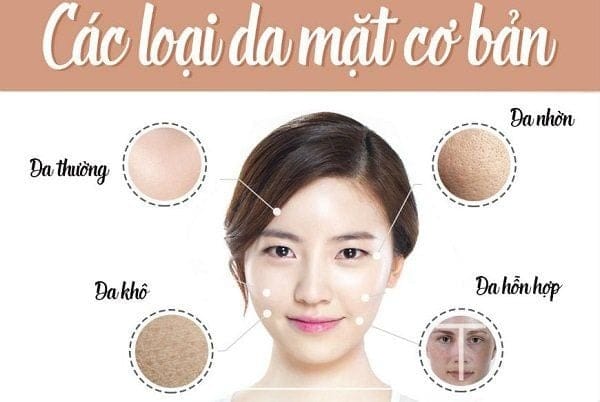
Oily Skin
Characterized by excess sebum production, oily skin often appears shiny—especially in the T-zone (forehead, nose, chin). Pores tend to be larger and more visible, making the skin prone to blackheads and acne.
Care Tips:
-
Use oil-control cleansers and toners.
-
Avoid heavy, greasy products.
-
Exfoliate regularly with BHA or AHA.
-
Apply clay masks weekly to absorb oil.

Dry Skin
Dry skin lacks moisture and can feel tight, flaky, or itchy. Pores are usually small and less visible.
Care Tips:
-
Use creamy or oil-based cleansers.
-
Hydrate with rich moisturizers containing hyaluronic acid or ceramides.
-
Avoid hot water and harsh soaps.
-
Apply hydrating masks weekly.
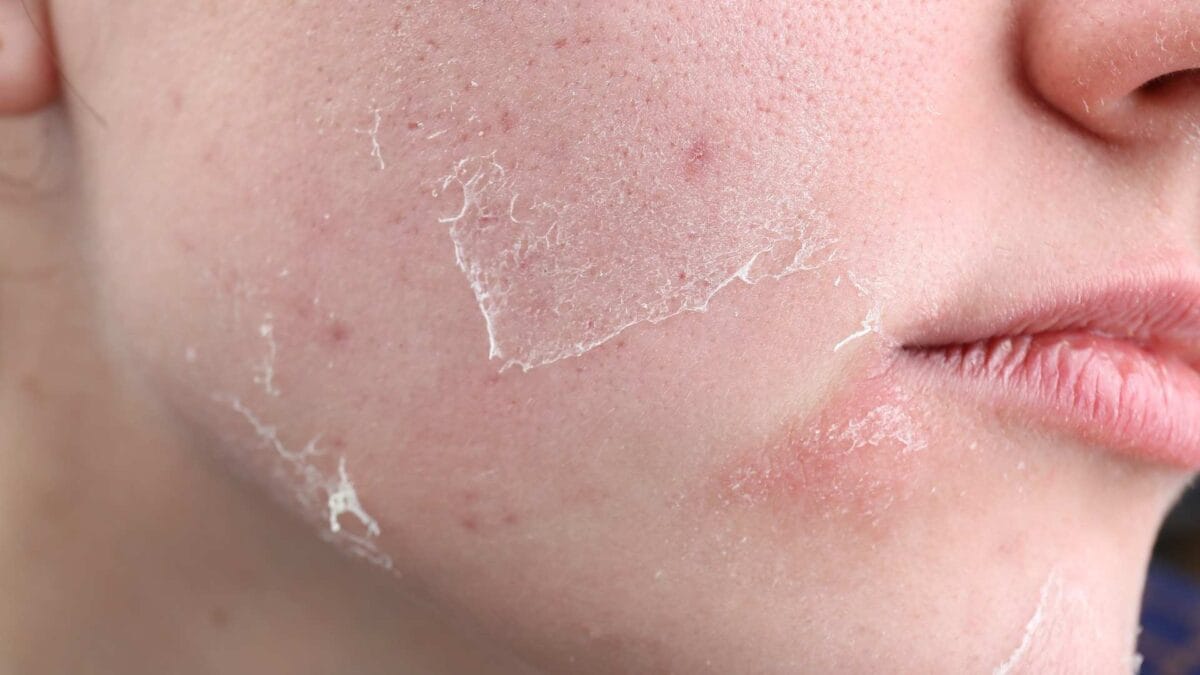
Combination Skin
This type features both oily and dry areas—typically, the T-zone is oily while cheeks are dry.
Care Tips:
-
Use different products for different zones.
-
Balance moisture with lightweight moisturizers.
-
Apply oil-control toner only on oily areas.
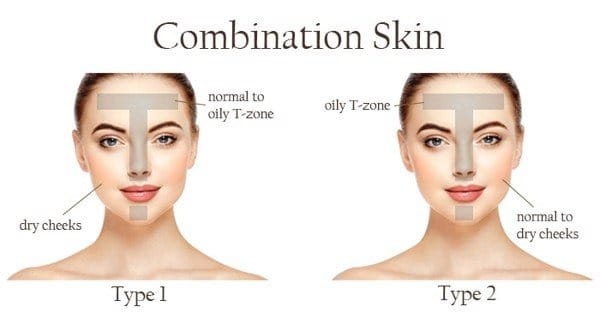
Sensitive Skin
Sensitive skin reacts easily to weather changes, harsh ingredients, or stress. It may show redness, stinging, or breakouts.
Care Tips:
-
Stick to fragrance-free, gentle products.
-
Avoid alcohol-based formulas.
-
Use calming ingredients like aloe vera or chamomile.
-
Always do patch tests when trying new products.
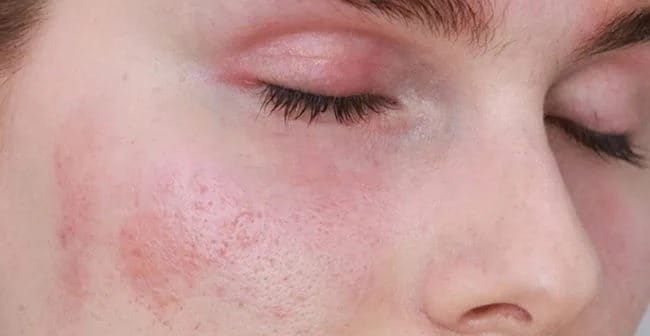
Normal Skin
Normal skin is well-balanced—not too oily or dry—with small pores and an even tone. It rarely experiences acne or irritation.
Care Tips:
-
Maintain a simple routine with gentle cleansers and moisturizers.
-
Use sunscreen daily.
-
Exfoliate once a week to keep skin fresh.
Factors That Influence Your Skin Type
Before jumping into skin type identification, understand that your skin can change over time due to internal and external factors:
-
Genetics: Your DNA plays a major role in determining your skin type.
-
Hormones: Puberty, pregnancy, and menstrual cycles can all affect oil production.
-
Diet: High-sugar and greasy diets may worsen acne or oiliness.
-
Environment: Cold or hot climates can cause dryness or increased oil production.
-
Skincare habits: Using inappropriate products can damage the skin barrier.
-
Stress and sleep: High stress and lack of sleep can increase oil and acne.
-
Aging: With age, skin tends to lose moisture and elasticity, leading to dryness.

Click here : Advanced Anti-Aging Skin Treatment at Hbio Clinic
How to find out your skin type
Let’s dive into practical techniques for determining your skin type from the comfort of your home:
Bare-Face (Water Test) Method
Steps:
-
Wash your face with a gentle cleanser.
-
Do not apply any skincare products.
-
Wait for 1 hour.
-
Observe how your skin feels.
Results:
-
Dry skin: Feels tight, rough, or flaky.
-
Oily skin: Appears shiny, especially in the T-zone.
-
Combination skin: Oily in the T-zone but dry elsewhere.
-
Normal skin: Feels soft and balanced.

Blotting Sheet Test (Paper Method)
Steps:
-
After cleansing, press blotting paper on different parts of your face.
-
Hold up the sheet to the light to check for oil.
Results:
-
-
Oily skin: Oil shows on all areas.
-
Dry skin: Little to no oil appears.
-
Combination skin: Oil appears only on the T-zone.
-

Pore Observation Test
Steps:
-
Look closely at your skin under natural light.
-
Focus on areas like the nose and cheeks.
Results:
-
Oily skin: Large, visible pores.
-
Dry skin: Small, tight pores.
-
Combination skin: Large pores in the T-zone, small elsewhere.
All-Day Feel Test
Pay attention to how your skin behaves throughout the day:
-
Feels greasy by noon? You likely have oily skin.
-
Tighter and duller by evening? Possibly dry skin.
-
T-zone shiny but cheeks feel dry? Probably combination skin.
These simple strategies will help you find out your skin type easily without any expensive tools.
How to Care for Each Skin Type Effectively

Click here: Melasma Pigmentation Treatment – A Radiant Skin Solution from Within
Oily Skin
-
Cleanse twice a day.
-
Use salicylic acid or glycolic acid-based exfoliants.
-
Moisturize with lightweight, oil-free products.
Dry Skin
-
Avoid over-washing.
-
Opt for rich moisturizers.
-
Protect your skin from extreme temperatures.
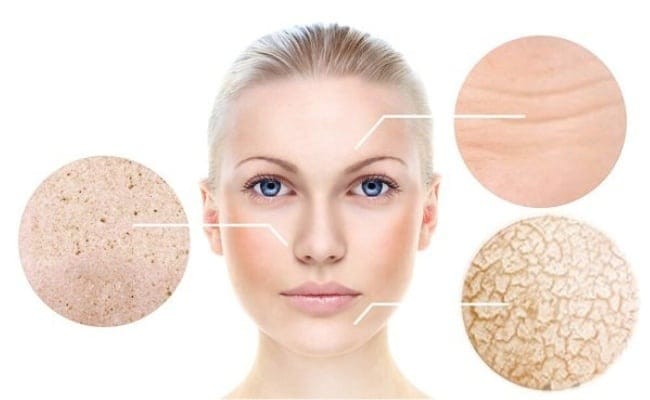
Click here : Advanced Anti-Aging Skin Treatment at Hbio Clinic
Combination Skin
- Use a gentle cleanser.
- Apply different moisturizers for different zones if needed.
- Spot treat oily areas with clay masks.
Sensitive Skin
-
Patch-test all new products.
-
Avoid fragrance and alcohol.
-
Keep your routine minimal and soothing.
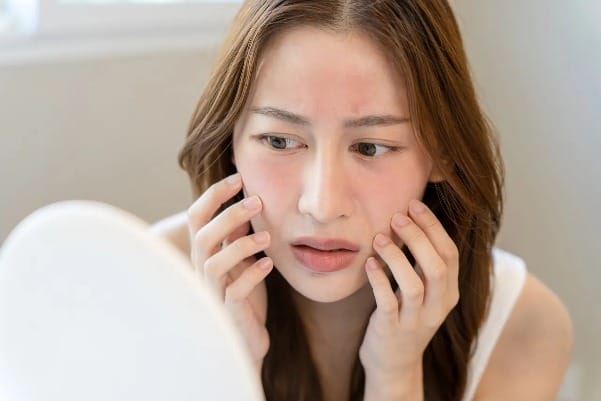
Normal Skin
-
Maintain the balance with gentle products.
-
Don’t overdo skincare steps.
-
Protect with SPF daily.
Learning how to identify facial skin type is essential for long-term skin health. Once you understand the nature of your skin, you can confidently choose the right products and build a routine that meets your unique needs.
If you’re unsure or your skin concerns persist, visit HBio Clinic for personalized consultation and advanced skin assessments. Let’s achieve glowing, healthy skin—starting with the basics.
Click here : Causes of Inflammatory Acne Formation and Effective Home Treatments for Red Inflamed Acne


 Tiếng Việt
Tiếng Việt
Dr. Thai Nguyen – Founder and Medical Director of HBIO Clinic. As an expert in aesthetic dermatology, she regularly shares in-depth knowledge and practical experience to provide valuable and insightful information for those seeking better skin health.